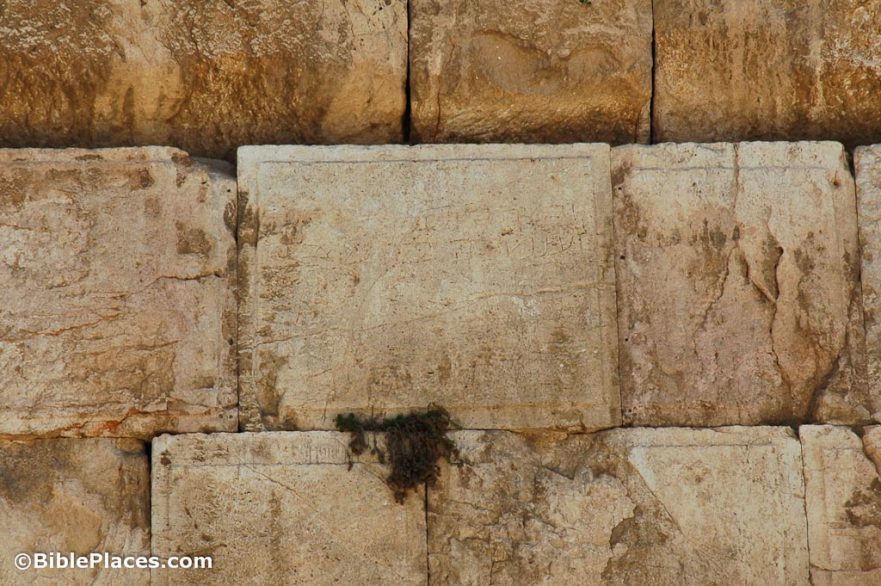In the spring of 1991 Jerusalem Perspective devoted its 32nd issue to the work of Dr. Lindsey.
A New Solution to the Synoptic Problem
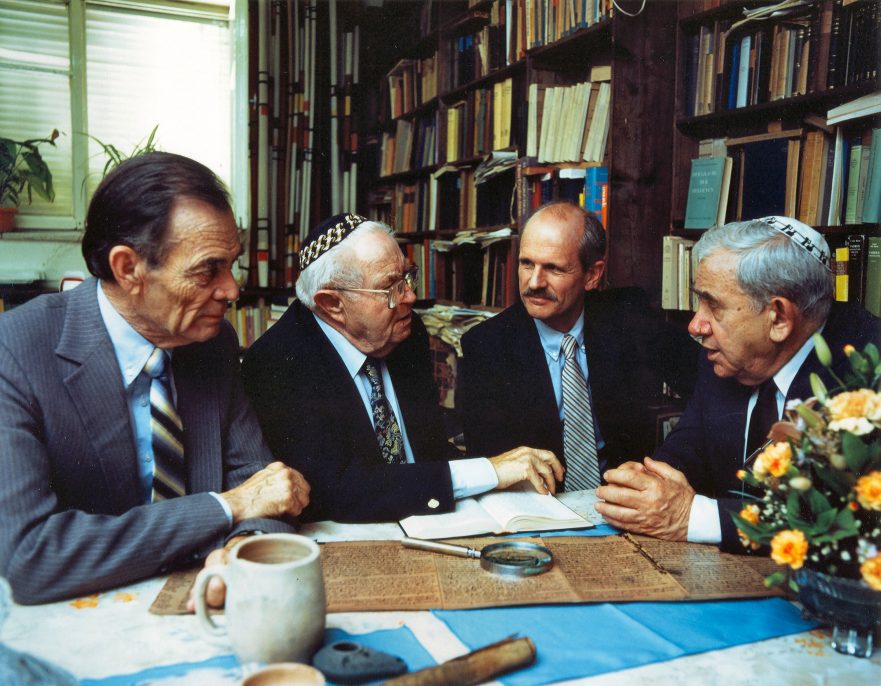
The many similarities among the Synoptic Gospels suggest a literary interdependence.
Hebrew Nuggets, Lesson 27: ta·NAK (Part 3)
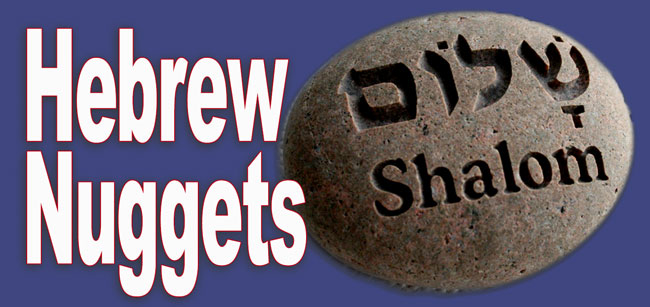
Final part in the three part series on the portions of Tannak.
Parables and Foundations

One of the many interesting results of synoptic research is the discovery of parallels between rabbinic literature and the Gospels of Matthew, Mark and Luke. Rabbinic parallels enhance our understanding of the sayings of Jesus, and vice versa. Jesus’ parable below is more understandable when compared with its rabbinic parallels, and the rabbinic sayings are illuminated by Jesus’ parable.
If King David were alive today, could he communicate with Israel’s president?

How hard would it be for a speaker of modern Hebrew to understand someone speaking Biblical Hebrew? If King David returned, would he be able to understand the president of the State of Israel, and would the president be able to understand him? Would Jesus be able to communicate with modern Israelis?
Hebrew Nuggets, Lesson 25: ta·NAK (Part 1)

Part one of a three-part series on the abbreviation ta·NAK.
Sidebar: “Ears of Corn”?
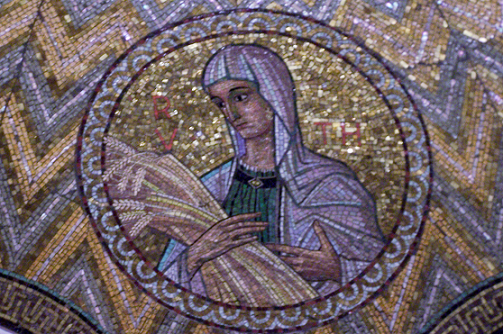
Does the New Testament depict the disciples picking yellow sweet corn (maize) in firs-century Israel?
Hebrew Nuggets, Lesson 24: Messiah (Part 2)

Athough the concept of Messiah is importance both in Judaism and Christianity, the Hebrew word מָשִׁיחַ (maSHIaḥ, messiah) was not often used in Jesus’ day. Jesus and his contemporaries rarely spoke of the Messiah by that name, but preferred to use other more oblique terms. In the New Testament, maSHIaḥ almost always appears in its Greek translation: χριστός (christos, anointed with oil; Christ). The Greek transliteration μεσσίας (messias) appears only twice, in John 1:41 and 4:25.
Views of the Jerusalem School of Synoptic Research

Underlying the research of the Jerusalem School is the hypothesis that the original biography of Jesus was written in Hebrew.
Hebrew Nuggets, Lesson 23: Messiah (Part 1)

The word “messiah” arouses great emotion in the hearts of Jews and Christians alike. In Hebrew Nuggets, Lesson 23, we examine the background of this Hebrew word. There is only one new letter for us to learn in the word מָשִׁיחַ (ma·SHI·aḥ, messiah). This is the letter ח (ḥet), the last letter of the word. ח (ḥet) is the eighth letter of the Hebrew alphabet. As already mentioned, Hebrew letters also serve as numbers. Being the eighth letter of the alphabet, the numerical value of ḥet is 8.
Hebrew Nuggets: Transliteration System

JP uses a system which hopefully elicits from English readers a pronunciation that comes close to the Hebrew.
“Binding” and “Loosing” in the Kingdom of Heaven

Jewish sages were called upon constantly by their community to interpret scriptural commands. They “bound,” or prohibited, certain activities, and “loosed,” or allowed, others.
Hebrew Nuggets, Lesson 22: Israel (Part 4)

Final part of a four-part series on the Hebrew word Israel.
Sidebar: Synagogue Guest House for First-century Pilgrims
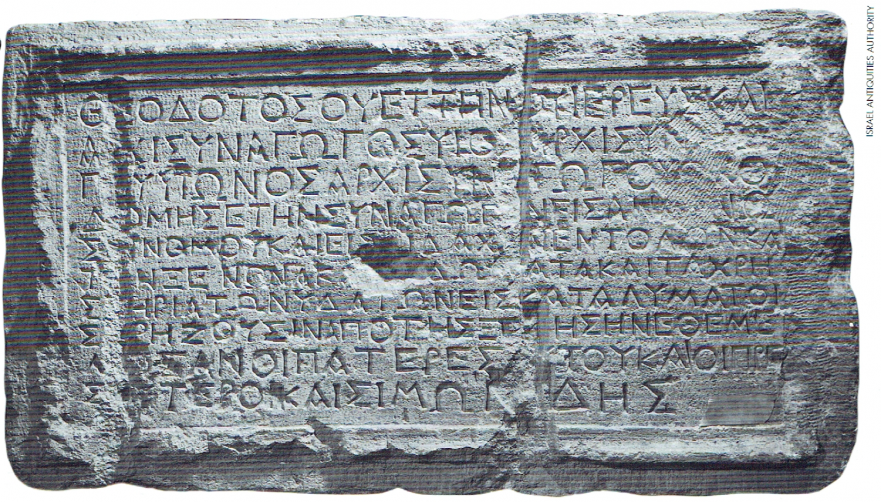
This Greek inscription provides evidence of the accommodations that were provided in Jerusalem for pilgrims.
Hebrew Idioms in the Gospels
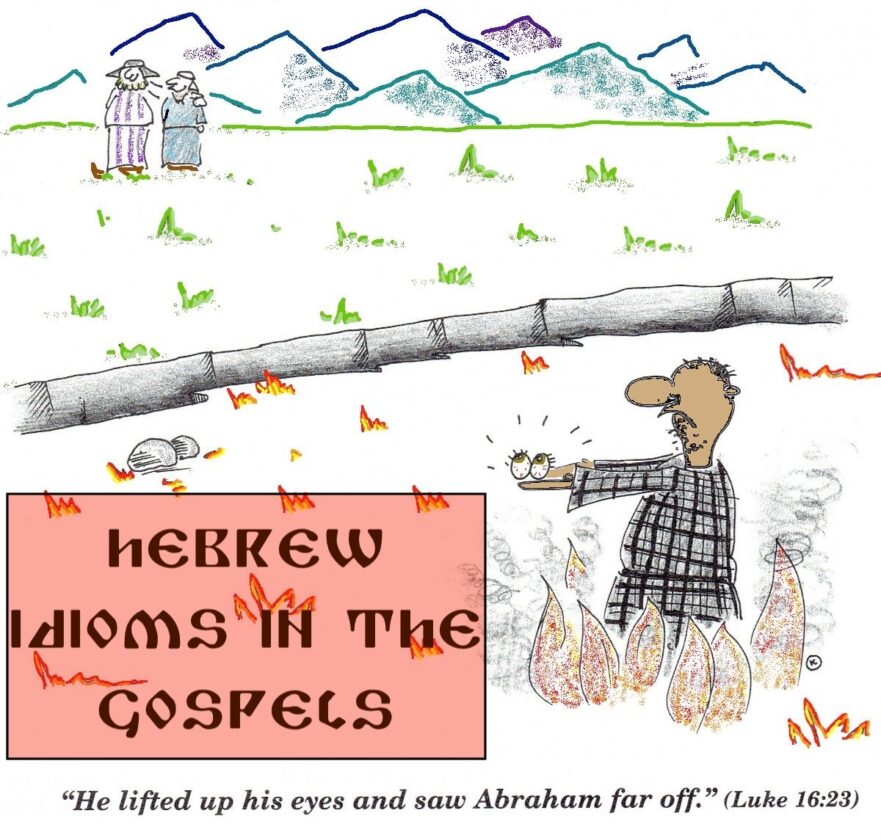
There are many expressions in the Greek texts of Matthew, Mark and Luke that seem to derive from Hebrew idioms. These are phrases that mean something different from the literal meaning of the words they use. Every language has its own idioms, many of which seem strange when translated literally out of their native setting.



